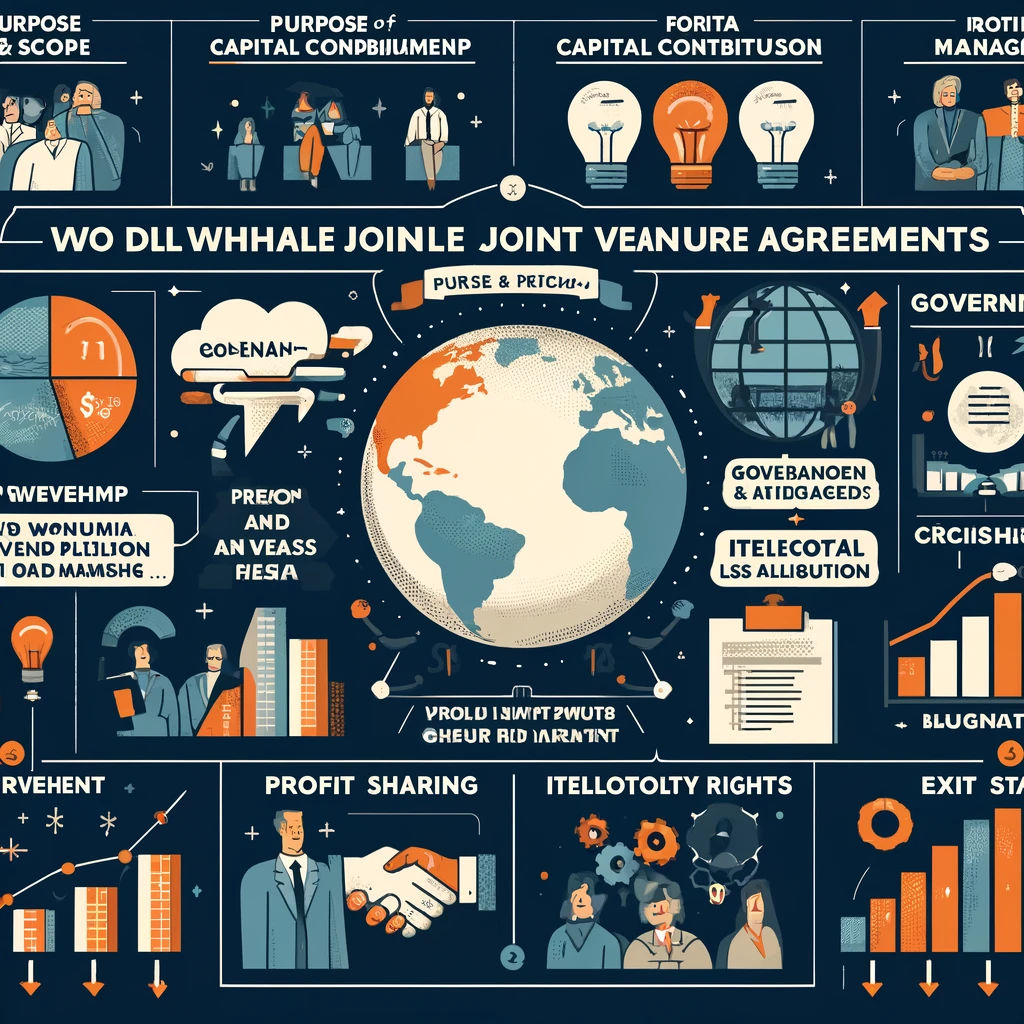Mastering Wholesale Joint Venture Agreements: A Strategic Guide
In the dynamic world of wholesale trade, joint ventures stand as a beacon of strategic partnership, driving expansion, innovation, and profitability. A well-structured wholesale joint venture agreement is pivotal in defining the roles, responsibilities, and benefits for each party involved. This comprehensive guide delves into the essentials of crafting a wholesale joint venture agreement, highlighting legal considerations, key components, and best practices, supplemented with authoritative .gov, .edu, and Wikipedia links for enhanced credibility.

Understanding Wholesale Joint Venture Agreements
A joint venture (JV) in the wholesale sector is a strategic alliance where two or more parties come together to undertake economic activities. The parties agree to create a new entity by both contributing equity and sharing revenues, expenses, and control of the enterprise. These agreements are crucial in combining resources, knowledge, and markets to achieve common objectives that might be too complex or expensive to pursue individually.
Legal Framework for Joint Ventures
The legal structure of a JV can vary significantly depending on the jurisdiction and the specific goals of the venture. Common structures include partnerships, limited liability companies (LLCs), or corporations. Each structure has distinct implications for liability, tax, and governance, making it crucial to consult legal and financial advisors to determine the most advantageous setup. For a deeper understanding of JV structures, visiting educational resources like Harvard Business School can provide valuable insights.
Crafting a JV Agreement: Essential Components
Purpose and Scope
Clearly define the JV's business objectives, scope of operation, and duration. This clarity ensures alignment and sets the foundation for a successful partnership.
Capital Contributions and Ownership
Detail each party's contribution to the venture, whether in capital, assets, or services, and specify the ownership percentage. This includes outlining how additional contributions, if needed, will be managed.
Governance and Management
Establish the governance structure of the JV, including the formation of a joint board of directors and the appointment of managers. Responsibilities, voting rights, and decision-making processes should be explicitly stated to avoid conflicts.
Profit Sharing and Loss Allocation
Describe the methodology for distributing profits and allocating losses among the parties. This could be based on ownership percentage or another agreed-upon formula.
Intellectual Property (IP) Rights
Address the ownership, use, and protection of IP rights generated by the JV. The agreement should specify how existing and future IP will be handled (Wikipedia offers a general overview of IP rights).
Exit Strategy
Include provisions for the dissolution of the JV, detailing the conditions under which the venture may be terminated, how assets will be distributed, and the handling of any outstanding liabilities.
Best Practices for Wholesale Joint Ventures
Conduct Due Diligence
Before entering into a JV, thoroughly vet potential partners. This includes assessing financial stability, reputation, and alignment of business values and goals.
Define Clear Objectives
Ensure that all parties have a unified understanding of the JV's objectives and expectations. Clear goals facilitate focused strategy and operations.
Flexible and Adaptive Structure
Design the JV to be flexible and capable of adapting to changing market conditions. This agility can be crucial for long-term success.
Regular Communication
Maintain open lines of communication among all JV partners. Regular updates, meetings, and reviews can help preemptively address issues and align strategies.
Legal and Financial Guidance
Engage legal and financial advisors to navigate the complex regulatory, tax, and operational considerations of forming and operating a JV.

Create & Review Your Contracts 10x Quality and Ease
Lawyer-level AI handles all your contract needs, with real lawyers providing safeguarding support

Conclusion
Wholesale joint venture agreements offer a pathway to strategic growth and market expansion. By understanding the critical components and adhering to best practices, businesses can forge partnerships that are robust, equitable, and poised for success. For further exploration, consulting with legal professionals and leveraging online resources from reputable .gov and .edu sites is advisable to ensure compliance and informed decision-making.

